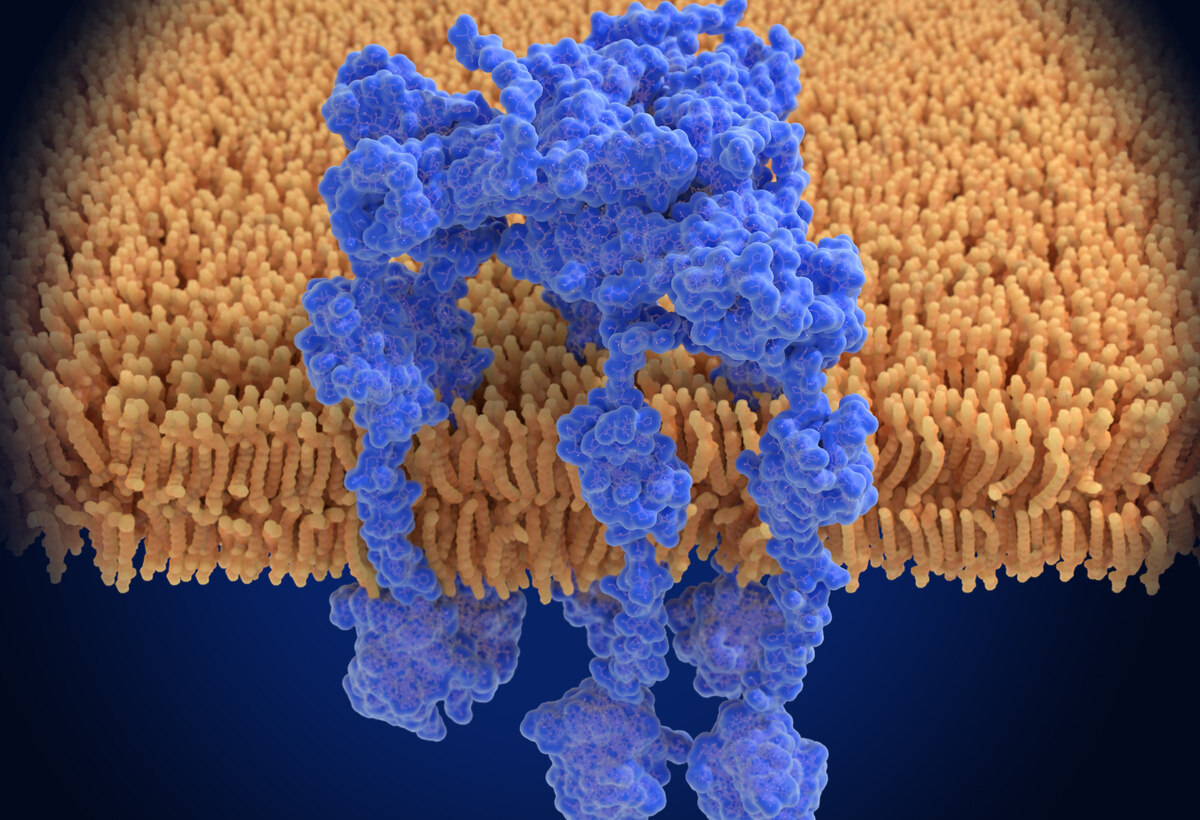
Heparan sulfate might sound like a complex term, but it's a crucial molecule in our bodies. Found on cell surfaces and within tissues, this sugar chain plays a vital role in various biological processes. Heparan sulfate helps with cell growth, blood coagulation, and even virus infections. Imagine it as a tiny traffic controller, guiding cells and molecules to their destinations. Without it, many bodily functions would go haywire. Scientists study heparan sulfate to understand diseases better and develop new treatments. Ready to learn more about this fascinating molecule? Here are 40 facts that will make you appreciate heparan sulfate even more!
Key Takeaways:
- Heparan sulfate is a crucial molecule found in our bodies, helping with cell adhesion, wound healing, and even immune responses. It's like a superhero that keeps our cells and organs working smoothly!
- Scientists are studying heparan sulfate to develop new treatments for blood clots, genetic disorders, cancer, and even viral infections. It's like a treasure trove of potential cures waiting to be discovered!
What is Heparan Sulfate?
Heparan sulfate is a complex carbohydrate found on cell surfaces and in the extracellular matrix. It plays a crucial role in various biological processes. Here are some fascinating facts about this essential molecule.
- Heparan sulfate is a type of glycosaminoglycan (GAG), which are long unbranched polysaccharides.
- It consists of repeating disaccharide units made up of glucosamine and glucuronic acid.
- This molecule is highly sulfated, meaning it has many sulfate groups attached to it.
- Heparan sulfate is synthesized in the Golgi apparatus of cells.
- It is attached to core proteins to form proteoglycans, which are essential for cell signaling.
Functions of Heparan Sulfate
Heparan sulfate is involved in a variety of biological functions. Its role in these processes is critical for maintaining normal cellular activities.
- It helps in cell adhesion, allowing cells to stick to each other and to the extracellular matrix.
- Heparan sulfate acts as a co-receptor for growth factors, enhancing their signaling.
- It plays a role in blood coagulation by interacting with antithrombin, a protein that inhibits blood clotting.
- This molecule is involved in lipid metabolism by binding to lipoprotein lipase.
- Heparan sulfate is crucial for wound healing, as it regulates the activity of growth factors involved in tissue repair.
Heparan Sulfate in Disease
Alterations in heparan sulfate structure or function can lead to various diseases. Understanding these changes can help in developing new treatments.
- Mutations in enzymes involved in heparan sulfate synthesis can cause genetic disorders like mucopolysaccharidosis.
- Heparan sulfate abnormalities are linked to cancer progression, as they can affect tumor growth and metastasis.
- In Alzheimer's disease, heparan sulfate can bind to amyloid-beta peptides, promoting plaque formation.
- Viral infections, such as herpes simplex virus, use heparan sulfate as an entry point into cells.
- Heparan sulfate deficiency can lead to kidney diseases, as it is essential for maintaining the filtration barrier in glomeruli.
Heparan Sulfate in Development
During development, heparan sulfate plays a pivotal role in shaping tissues and organs. Its interactions with various proteins guide cellular processes.
- It regulates the activity of morphogens, which are signaling molecules that pattern tissues.
- Heparan sulfate is essential for the proper formation of the nervous system.
- It influences the development of blood vessels by modulating the activity of vascular endothelial growth factor (VEGF).
- This molecule is involved in limb development by interacting with fibroblast growth factors (FGFs).
- Heparan sulfate helps in the formation of the skeletal system by regulating bone morphogenetic proteins (BMPs).
Heparan Sulfate in the Immune System
The immune system relies on heparan sulfate for various functions. Its interactions with immune cells and molecules are vital for a proper immune response.
- It modulates the activity of chemokines, which are signaling proteins that attract immune cells to infection sites.
- Heparan sulfate is involved in the activation of T cells, which are crucial for adaptive immunity.
- It helps in the clearance of pathogens by binding to and presenting them to immune cells.
- This molecule plays a role in inflammation by regulating the activity of cytokines.
- Heparan sulfate is essential for the function of dendritic cells, which are antigen-presenting cells that initiate immune responses.
Heparan Sulfate in the Nervous System
Heparan sulfate is critical for the development and function of the nervous system. Its interactions with neural cells and growth factors are essential for brain health.
- It regulates the activity of neurotrophic factors, which support the growth and survival of neurons.
- Heparan sulfate is involved in synapse formation, which is crucial for neural communication.
- It influences neural plasticity, allowing the brain to adapt and change in response to experiences.
- This molecule plays a role in axon guidance, helping neurons find their correct targets.
- Heparan sulfate is essential for the maintenance of the blood-brain barrier, which protects the brain from harmful substances.
Therapeutic Potential of Heparan Sulfate
Research on heparan sulfate has led to the development of potential therapies for various diseases. Its unique properties make it a promising target for drug development.
- Heparan sulfate mimetics are being developed as anticoagulants to prevent blood clots.
- Enzyme replacement therapies are being explored for treating genetic disorders involving heparan sulfate.
- Heparan sulfate inhibitors are being studied for their potential to block cancer metastasis.
- This molecule is being investigated as a target for antiviral therapies, as many viruses use it to enter cells.
- Heparan sulfate-based drugs are being developed to promote wound healing and tissue regeneration.
Heparan Sulfate in Research
Heparan sulfate is a focus of extensive research due to its diverse roles in biology. Scientists are continually uncovering new functions and applications for this molecule.
- Advanced imaging techniques are used to study the structure of heparan sulfate at the molecular level.
- Genetic engineering is employed to create animal models with altered heparan sulfate synthesis for studying diseases.
- Researchers use mass spectrometry to analyze the composition and modifications of heparan sulfate.
- Computational modeling helps in understanding the interactions between heparan sulfate and proteins.
- Collaborative efforts between biologists, chemists, and clinicians are driving the discovery of new therapeutic applications for heparan sulfate.
The Final Word on Heparan Sulfate
Heparan sulfate plays a crucial role in various biological processes. From aiding cell growth to influencing blood coagulation, this complex carbohydrate is essential for maintaining health. Its involvement in disease mechanisms, like cancer and viral infections, highlights its importance in medical research. Understanding heparan sulfate can lead to breakthroughs in treatments and therapies.
Researchers continue to uncover new functions and applications for heparan sulfate. Its potential in regenerative medicine and drug delivery systems shows promise. Staying informed about these developments can provide insights into future medical advancements.
Incorporating knowledge about heparan sulfate into healthcare practices could improve patient outcomes. As science progresses, the significance of this molecule will likely become even more apparent. Keep an eye on emerging studies to stay updated on this fascinating topic.
Frequently Asked Questions
Was this page helpful?
Our commitment to delivering trustworthy and engaging content is at the heart of what we do. Each fact on our site is contributed by real users like you, bringing a wealth of diverse insights and information. To ensure the highest standards of accuracy and reliability, our dedicated editors meticulously review each submission. This process guarantees that the facts we share are not only fascinating but also credible. Trust in our commitment to quality and authenticity as you explore and learn with us.


